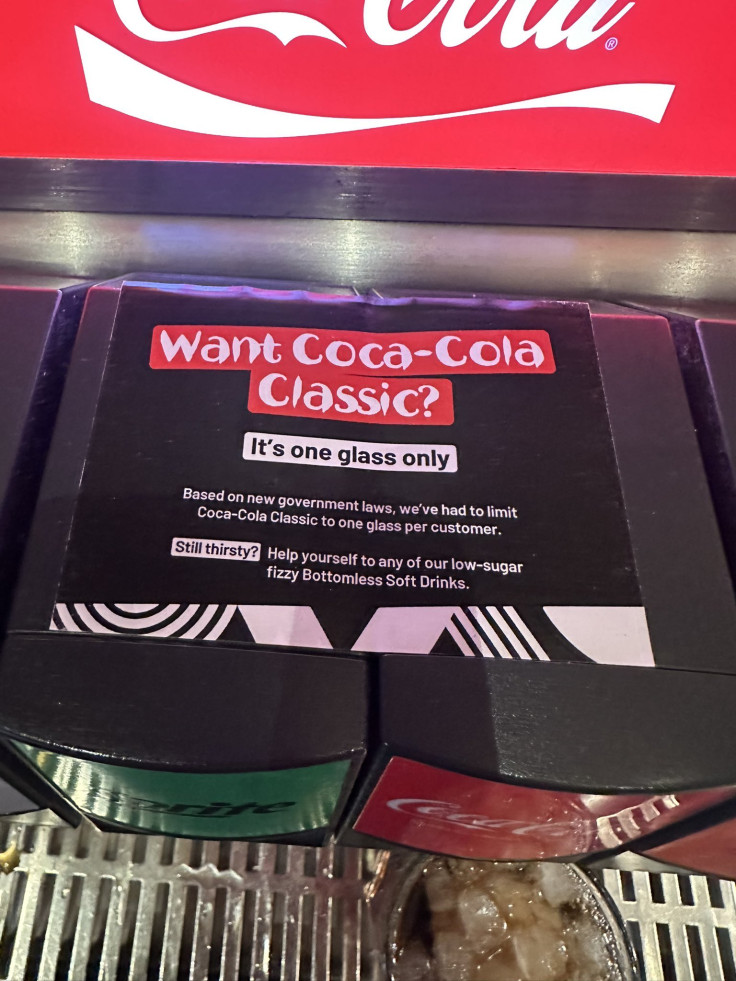Nando's Bans Bottomless Coke as Sugar Crackdown Intensifies — But How Obese Has Britain Really Become?
Nando's limits full-sugar Coke refills as UK obesity rates climb — signaling a wider shift in Britain's war on sugar

At lunchtime in a busy Nando's, a familiar tradition has quietly disappeared. The bottomless Coca-Cola machine — once a symbol of casual indulgence — now comes with a limit: just one refill for the full-sugar version. The change is small, but it captures a national shift. Britain's relationship with sugar is being rewritten, one restriction at a time.
The restaurant chain confirmed the move follows government rules restricting free refills of high-sugar soft drinks, part of a widening effort to curb obesity and related diseases. Diet alternatives such as Coke Zero and Sprite Zero remain unlimited, but the message is clear: sugar is no longer meant to be effortless.
Behind the change lies a public health challenge that has evolved from individual willpower to structural reform. In England, 64% of adults are now overweight or obese, according to the Health Survey for England 2022 (NHS Digital). Around 29% fall within the obesity range — up from 14% in the early 1990s. Among children aged 2 to 15, 15% are obese, and 27% are overweight or obese. The trend is even more pronounced among older teens and in deprived areas, where obesity rates are nearly twice as high as in the least deprived communities (Office for Health Improvement and Disparities, 2025).
Nando’s: Based on new government laws, we’ve had to limit Coca Classic to one glass per customer
— James Goddard (@JamesPGoddard90) October 2, 2025
There’s more rules and regulations in Modern Britain than Enver Hoxha’s Albania pic.twitter.com/pEOLlXQ1Dv
The cost to public services is staggering. Obesity-related illness is estimated to cost the NHS more than £6.5 billion a year, with the wider UK economy losing around £27 billion annually in reduced productivity and health impacts. The health burden is not evenly distributed: higher rates of obesity are recorded in the North East, Yorkshire, and the West Midlands, while London remains the lowest region on average BMI.
Yet the narrative that 'Britain is obese' oversimplifies. Measured obesity rates have plateaued in recent years, suggesting that while the problem is large, it may no longer be accelerating. Public health experts credit policies such as the Soft Drinks Industry Levy, which led manufacturers to cut sugar in beverages by nearly 30% since 2018. Meanwhile, there has been an ample increase in calorie labeling in restaurants and restrictions on junk-food promotions.
Critics argue these interventions are paternalistic or cosmetic — that banning refills or promotions will not alter deeply embedded food habits shaped by inequality, convenience, and stress. But research indicates that even modest reductions in sugar availability can have a measurable population effect over time. According to a 2022 Lancet Public Health study, reducing average daily sugar intake by just 30% could prevent tens of thousands of diabetes cases per year.
A single refill ban at Nando's will not slim the nation overnight. But it signals a cultural correction: the quiet end of an era when excess sugar was considered harmless. Britain may not be the 'obese nation' headlines imply — but it is undeniably heavier, more sedentary, and more metabolically strained than it was a generation ago. In that context, one less bottomless Coke might be less about denial and more about course correction.
© Copyright IBTimes 2025. All rights reserved.





















